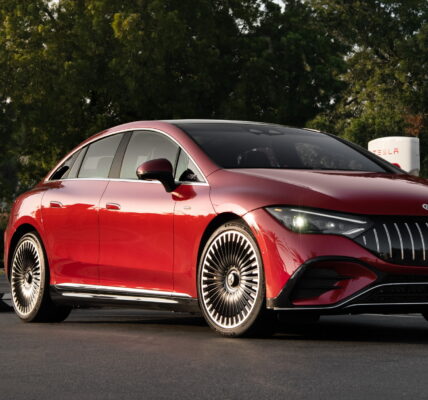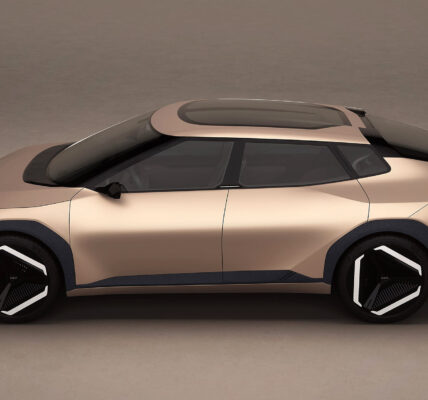President Joe Biden announced $2.8 billion in grants on Wednesday to expand U.S. production of electric vehicle batteries, with some awards going to suppliers of major auto companies including Tesla and Mercedes-Benz.
Twenty companies received grants ranging from $50 million to over $480 million under the first round of funding through the Bipartisan Infrastructure law. The president also announced the American Battery Materials Initiative, a whole-of-government effort to secure a reliable and sustainable supply of critical minerals used in EVs.
The moves are meant to boost the U.S. supply of electric vehicle battery components while reducing reliance on China.
“China’s battery technology is not more innovative than anyone else’s,” Biden said at an event announcing the awards. “But by undercutting U.S. manufacturers with their unfair subsidies and trade practices, China seized a significant portion of the market.”
The funding will support manufacturers that have recently inked partnerships with large automakers such as Tesla, General Motors and Mercedes-Benz.
Sila Nanotechnologies received $100 million to build a factory in Moses Lake, Washington, that will supply Mercedes-Benz with lithium-ion anode materials once operational. Talon Metals’ subsidiary Talon Nickel, which recently inked a supply agreement with Tesla, received $114.8 million to construct a battery minerals processing facility to help meet demand.
“From mine to battery production, Talon and Tesla plan to create a domestic supply chain from primary (mined) nickel ore through to recycling,” according to the project description.
Ascend Elements, which makes EV components through the recycling of lithium-ion batteries, received the most funding with two grants totalling over $480 million. The company plans to build two facilities to expand the production of battery materials.
Automakers have rushed to expand electric vehicle production in North America. The Biden administration set a goal for half of new U.S. vehicle sales to be electric by 2030, and the White House has pushed new incentives for automakers to produce and source closer to home. The president also invoked the Defense Production Act in March to support the production and processing of minerals.
“The demand for minerals like lithium and graphite is expected to increase by as much as 4,000%,” Biden said. “Some see it as a challenge, but we see an opportunity — a real opportunity to shift to a net-zero sum carbon world in one of the most significant economic transitions since the Industrial Revolution.”








